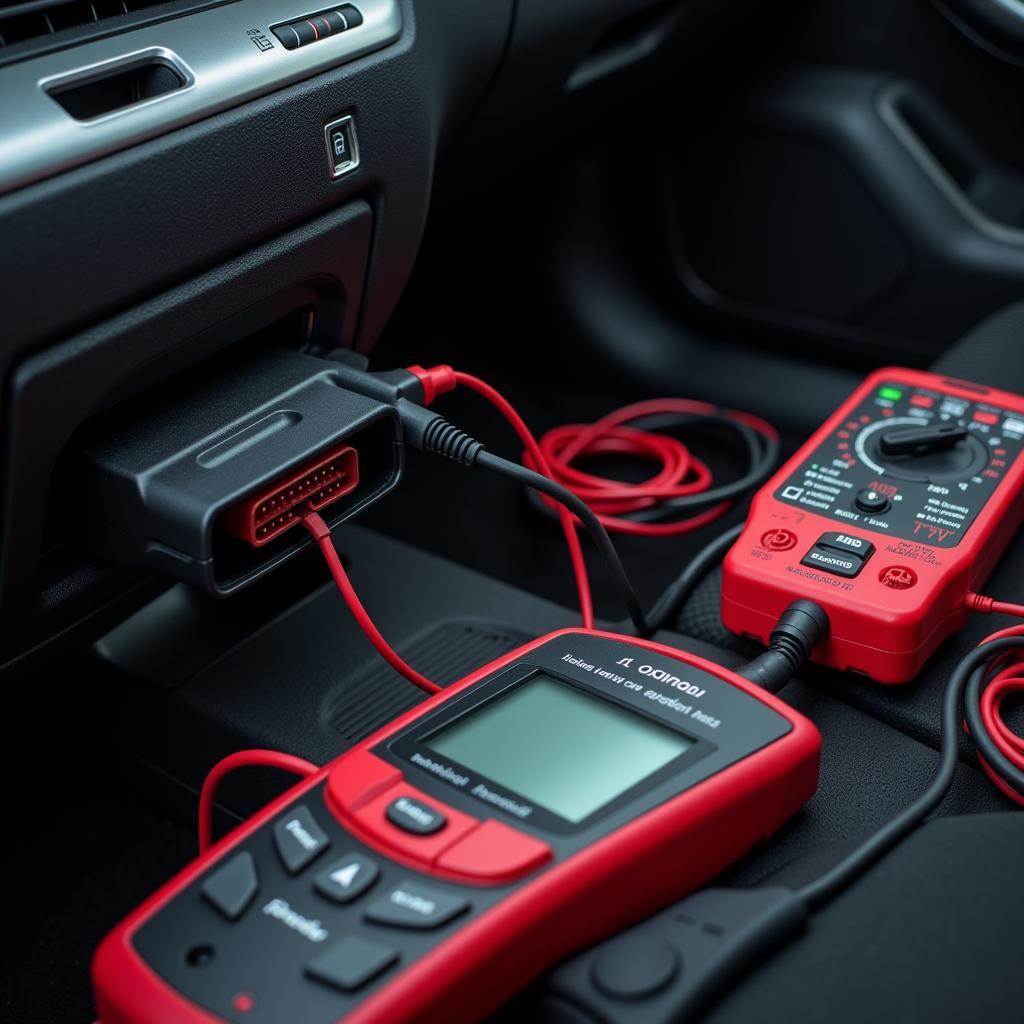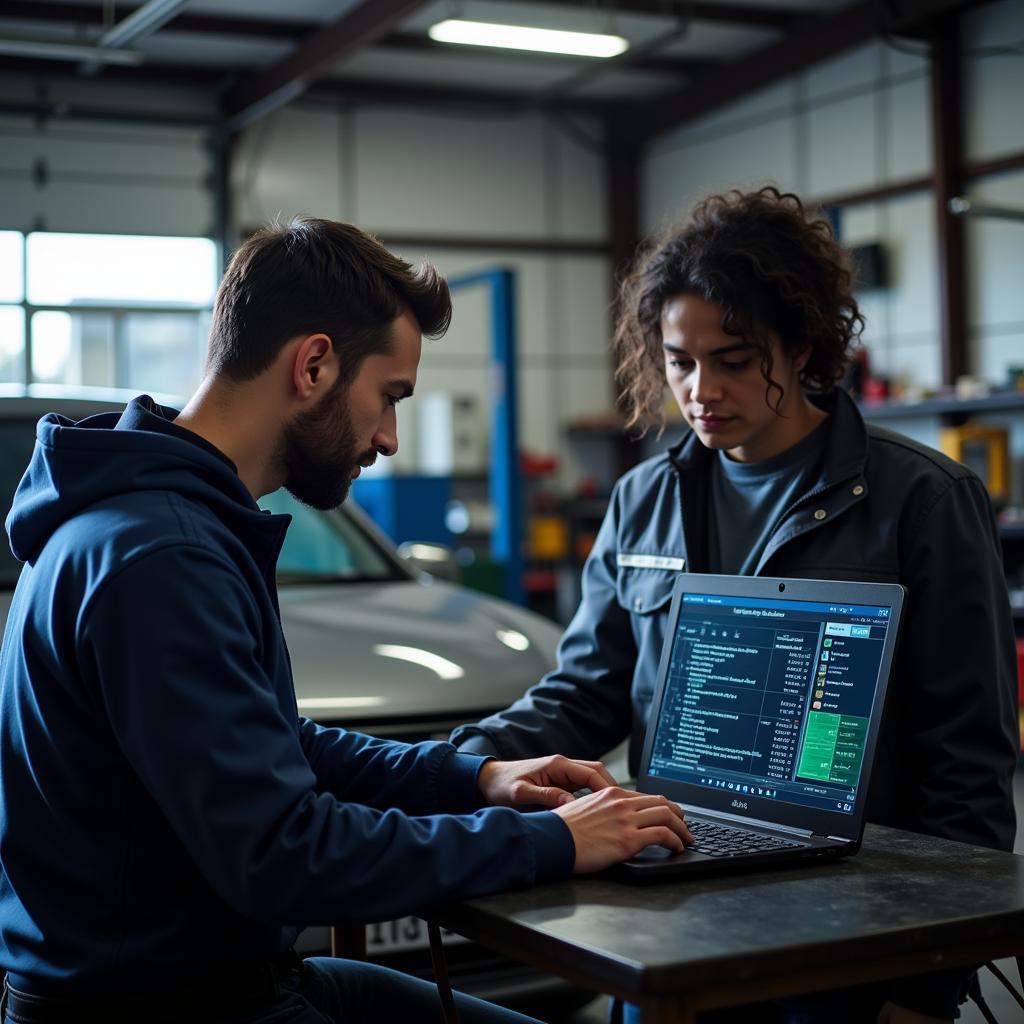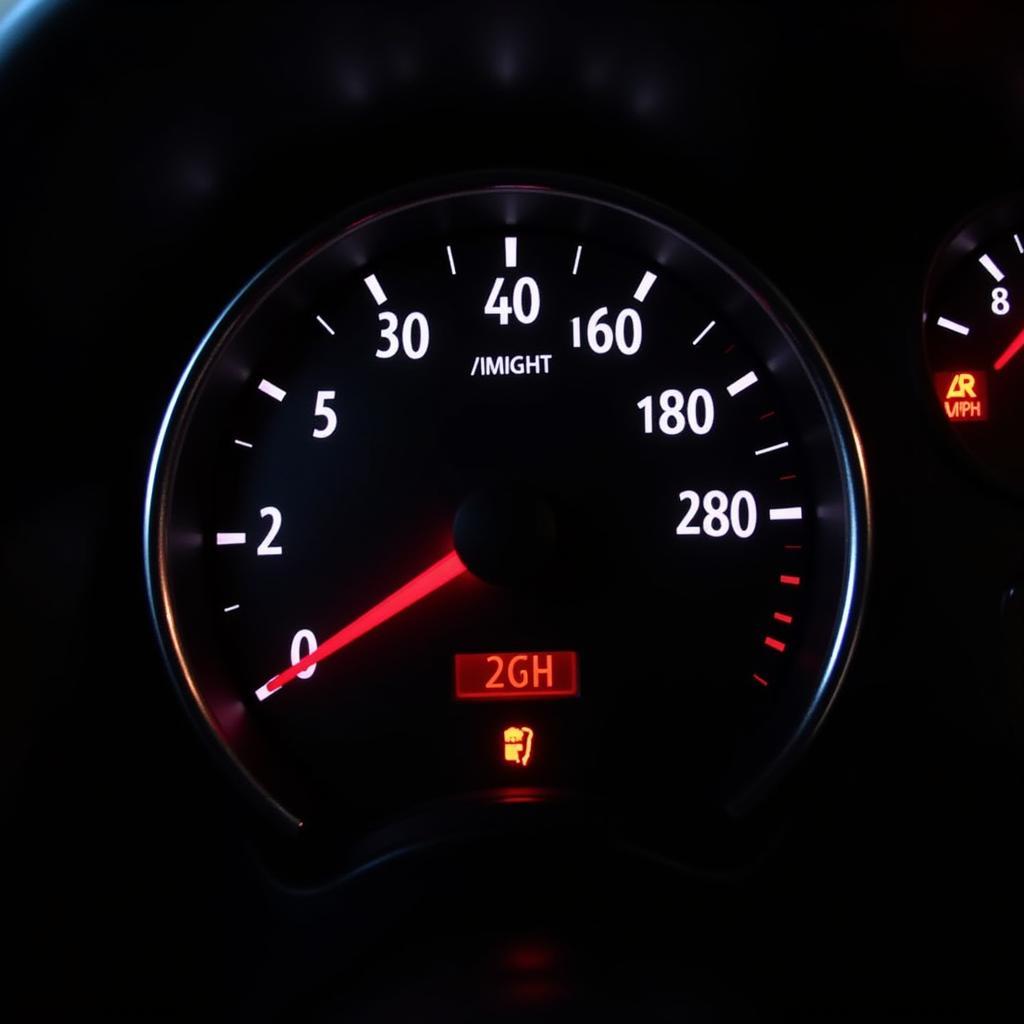The world of car diagnostics can seem like a labyrinth of blinking lights and cryptic codes. For many car owners, the appearance of the check engine light is enough to send shivers down their spines. However, understanding the basics of car diagnostics doesn’t have to be a daunting task. This guide will delve into the world of car diagnostics, providing you with valuable insights from the perspective of experienced car mechanics.
 Car Diagnostic Tools Connected to a Vehicle
Car Diagnostic Tools Connected to a Vehicle
The Importance of Accurate Car Diagnostics
Car diagnostics involve identifying problems within a vehicle’s systems. This process relies heavily on interpreting data from various sensors throughout the car, transmitted to a central computer system. This data provides a snapshot of the car’s health, helping pinpoint the root cause of a problem rather than just addressing the symptoms.
Accurate diagnostics are crucial for several reasons:
- Effective Repairs: Accurately identifying the source of a problem ensures that the correct repairs are made the first time, saving both time and money.
- Preventing Further Damage: Early detection of issues through diagnostics can prevent minor problems from escalating into major and costly repairs.
- Improved Vehicle Performance: By identifying and addressing issues early on, car diagnostics can help maintain optimal vehicle performance, fuel efficiency, and longevity.
 Mechanic Analyzing Diagnostic Data on Laptop
Mechanic Analyzing Diagnostic Data on Laptop
Common Car Diagnostic Tools and Techniques
Modern car mechanics utilize a range of sophisticated tools and techniques to diagnose car problems:
- OBD-II Scanners: The On-Board Diagnostics II (OBD-II) port, standard on most vehicles since 1996, acts as a gateway to the car’s computer system. OBD-II scanners retrieve Diagnostic Trouble Codes (DTCs) stored in the computer, providing valuable clues about potential issues.
- Multimeters: These versatile tools measure electrical properties like voltage, current, and resistance, helping diagnose electrical faults within the car’s systems.
- Pressure Gauges: These gauges measure fluid pressure in various systems, such as the fuel system, cooling system, and transmission, aiding in the diagnosis of leaks and pressure-related problems.
- Visual Inspections: Don’t underestimate the power of a keen eye. Experienced mechanics often begin with a visual inspection of the engine bay, undercarriage, and other areas to look for visible signs of damage, leaks, or wear and tear.
Understanding Diagnostic Trouble Codes (DTCs)
DTCs are alphanumeric codes that correspond to specific issues within the car’s systems. These codes are standardized across most vehicles, providing a common language for mechanics to understand and diagnose problems.
“While DTCs provide a starting point for diagnosis, they should not be taken as gospel,” says John Smith, a certified master mechanic with over 20 years of experience. “It’s important to consider other factors, such as the vehicle’s history, recent repairs, and the driver’s description of the problem, to arrive at an accurate diagnosis.”
 Car Dashboard Displaying Check Engine Light
Car Dashboard Displaying Check Engine Light
The Future of Car Diagnostics
The field of car diagnostics is constantly evolving with the advancement of technology.
- Telematics and Remote Diagnostics: Cars are becoming increasingly connected, allowing for remote diagnostics and even predictive maintenance.
- Artificial Intelligence (AI): AI is being integrated into diagnostic tools to analyze complex data patterns and provide more accurate and efficient diagnoses.
Conclusion
Understanding the basics of car diagnostics empowers car owners to be more informed about their vehicles and make better decisions regarding maintenance and repairs. By staying informed about the latest advancements in car diagnostics and partnering with a trusted mechanic, you can keep your car running smoothly for years to come.
FAQs
- What should I do if my check engine light comes on?
- Don’t panic! It’s best to have your car inspected by a qualified mechanic as soon as possible to diagnose the problem.
- Can I diagnose car problems myself?
- While some basic diagnostic tools are available for home use, it’s generally recommended to seek professional help for accurate diagnoses and repairs.
- How often should I have my car diagnosed?
- It’s a good idea to have your car inspected at least once a year or as recommended in your owner’s manual.
Need Help with Your Car Diagnostics?
Contact us today via WhatsApp: +1(641)206-8880 or Email: [email protected]. Our team of car diagnostic experts is available 24/7 to answer your questions and provide the assistance you need.

Leave a Reply